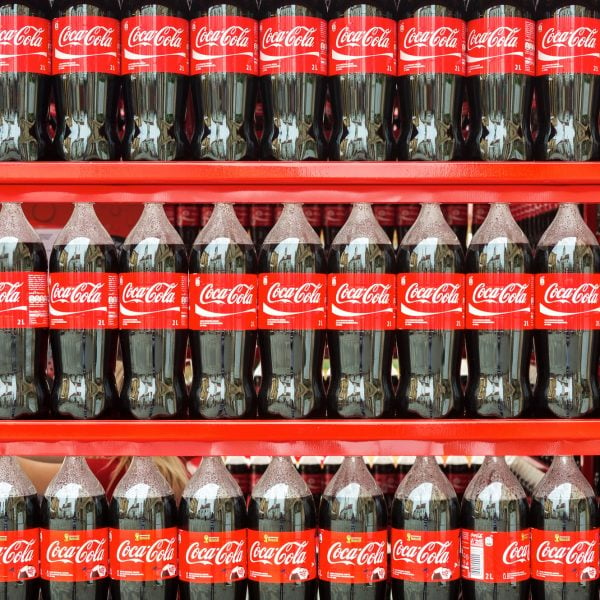[ad_1]
The Coca-Cola Company – named the world’s worst plastic polluter for six consecutive years – appears to have dropped its pledge to pivot to 25 per cent reusable packaging by 2030.
The company announced the “evolution” of its voluntary environmental goals on Monday as the fifth session of negotiations for a global plastics treaty concluded in Busan, South Korea.
Missing from Coca-Cola’s list of commitments was a mention of its pledge to have 25 per cent of its drinks sold in refillable or returnable packaging, which was announced with much fanfare in 2022 and which the company called “industry-leading”.
“Reusable packaging is among the most effective ways to reduce waste, use fewer resources and lower our carbon footprint in support of a circular economy,” The Coca‑Cola Company’s senior director of packaging and climate Ben Jordan said at the time.
The pledge was quietly removed from the company’s website at some point between 20 November and the start of the negotiations in Busan, a Guardian investigation found.
Coca-Cola accused of “deflecting responsibility”
In lieu of this, the company is prioritising efforts to reduce packaging waste. But these goals, too, have been watered down and pushed back.
Coca-Cola’s original aim of having at least 50 per cent recycled content across all its packaging materials by 2030 has now shifted to 35 to 40 per cent recycled content in only its “primary packaging” by 2035.
The company, which has topped the list of the world’s worst plastic polluters for six years running, is pledging instead “to ensure the collection of 70 per cent to 75 per cent of the equivalent number of bottles and cans introduced into the market annually”.
“Coca-Cola corporates are the true masters of the old tobacco and fossil fuel playbook, diverting attention and deflecting responsibility for the impact of their products,” Sian Sutherland, co-founder of non-profit A Plastic Planet, told Dezeen.
“So it comes as no surprise that they have now buried their commitment to reusable packaging; instead deploying the last-century rhetoric that we need to improve recycling systems.”
“Coca-Cola’s actions reinforce the need for a strong, legally-binding treaty,” added Sarah Martik, executive director of the non-profit Center for Coalfield Justice.
“Because there is no accountability when a company flip-flops on voluntary, corporate-driven measures in our current system.”
Plastics treaty negotiations stalled in Busan
The news comes after nearly 200 nations taking part in the fifth session of the global plastics treaty negotiations failed to reach an agreement on how to tackle the problem, with some “high-ambition” countries wanting to actively limit production, while others want to focus only on waste.
Negotiations will now resume next year, with the location yet to be determined.
Sutherland argues that far from a failure, this should be considered a small victory as nations refused to concede to the plastic industry lobbyists, who descended on Busan in force and made up the single biggest group at the negotiations, outnumbering delegates from EU.
“Their goal was to end with a weak treaty that allowed petrochemical-dependent brands such as Coca-Cola to carry on with business as usual – and they failed,” Sutherland said. “The treaty negotiations will continue and their lobbying has resulted in a substantially increased media and public outrage at their antics.”
“I have never seen so much attention on the impact of plastic and chemicals on human health. This is a backfire on fossil fuel plastic of epic proportions and we all need to ride the momentum of truth to finally turn off the plastic tap and protect every living creature on our planet.”
Dezeen has approached Coca-Cola for comment.
Top image by DeymosHR via Shutterstock.
[ad_2]
Source link

